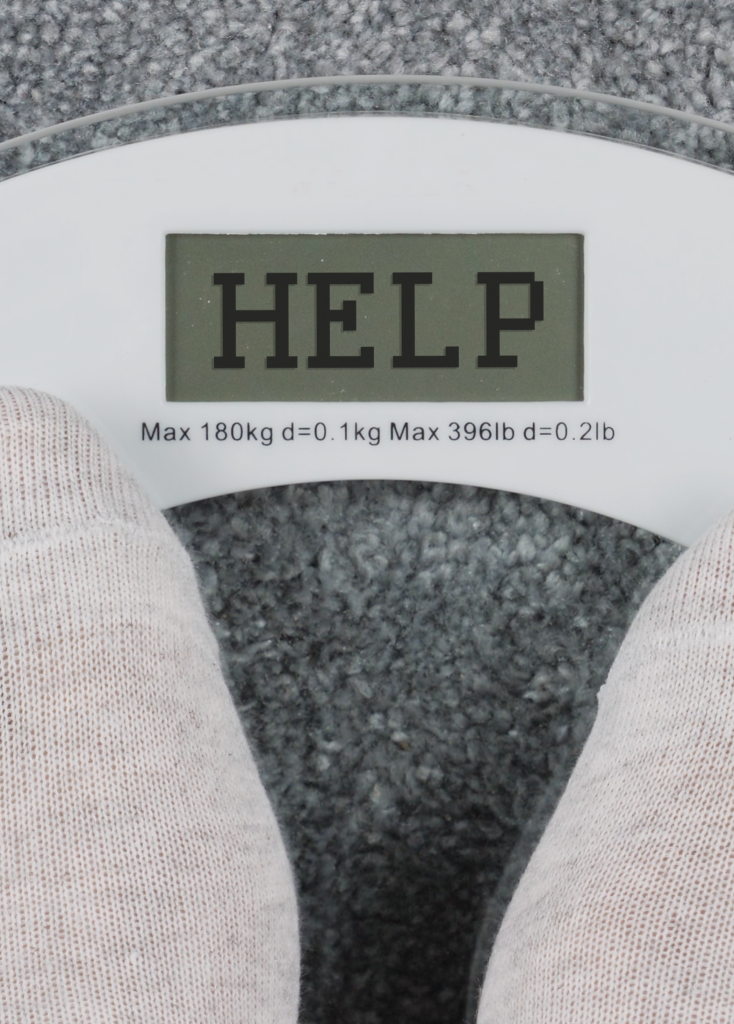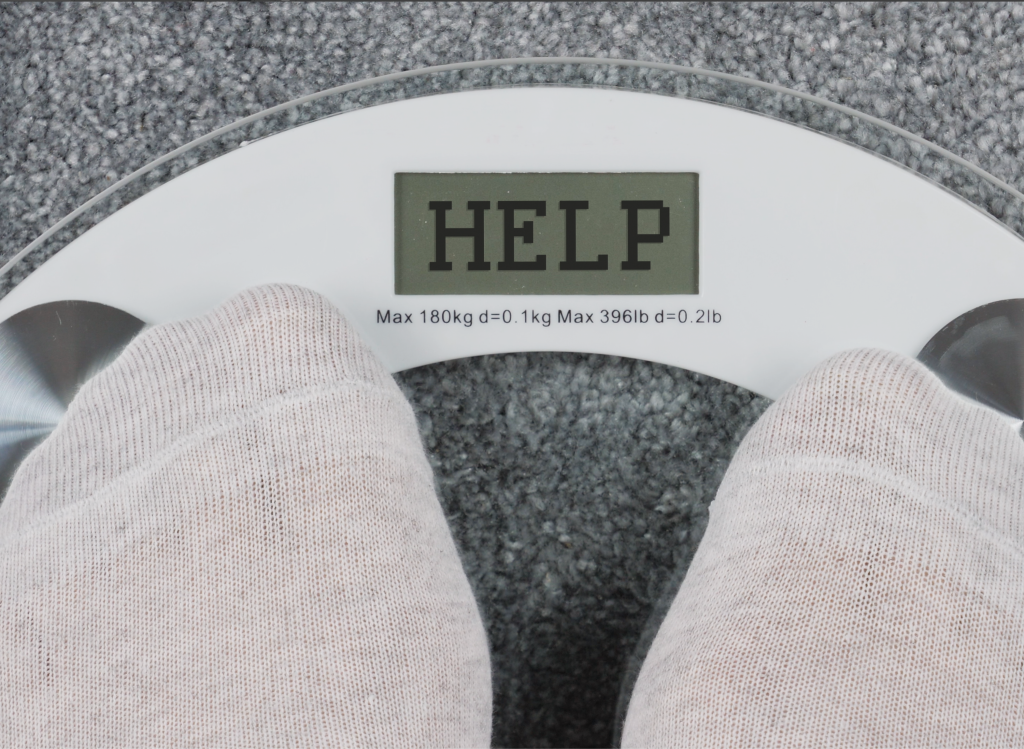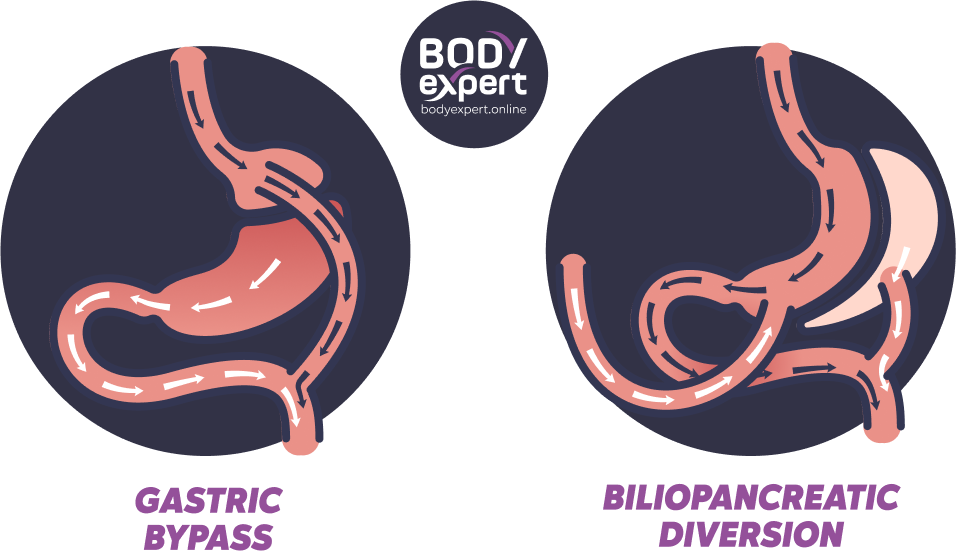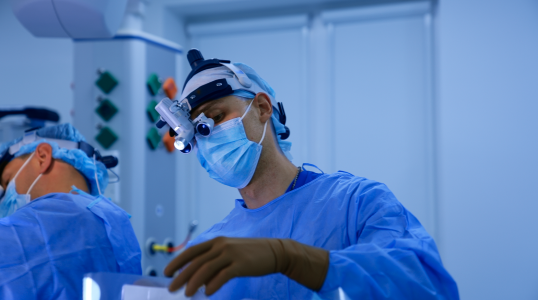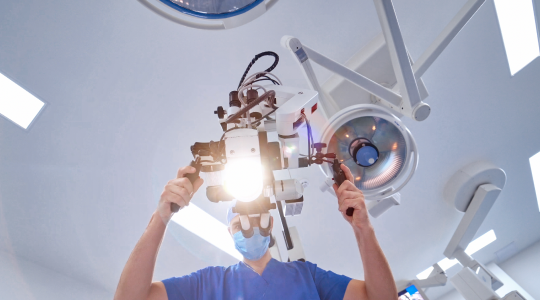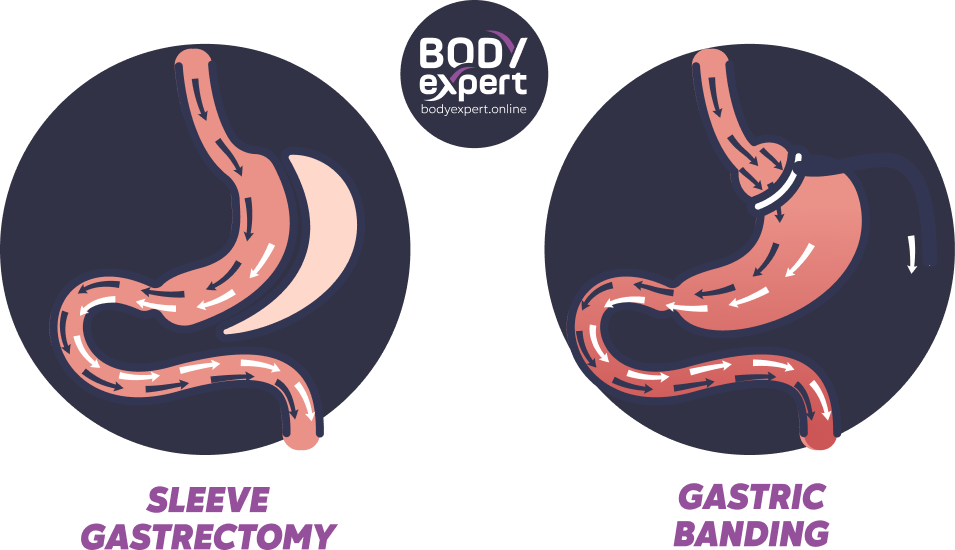
Purely restrictive techniques
The so-called pure restrictive techniques that reduce the size of the stomach are the following:


Save Up to 70%
More inclusive BMI standards
for surgery vs. UK.
Priority Treatment in English
and rigorous long term follow-up


Save up to 70%
80% Cheaper Than the UK, the US, Canada and Ireland
Globally acclaimed obstetric surgeons at your service
English-Speaking Care & Thorough Post-Op Follow-Up
High approval with 98% satisfied patients

Obesity is a persistent condition that can profoundly impact daily living.
Severe or morbid obesity can pose serious health risks such as diabetes, high blood pressure, and high cholesterol. Weight loss surgery, also known as bariatric surgery, is a viable solution for addressing this issue. It can lead to permanent weight loss and the control of diseases that stem from obesity, but it should only be considered as a last resort after undergoing significant dietary changes. Weight loss surgery involves extensive preparation and a complete shift in lifestyle, which is why it’s recommended only for highly motivated patients.
Choosing Turkey for your procedure is not only cost-effective but also ensures you’re in the hands of highly experienced bariatric surgeons who prioritise the well-being and safety of their patients. Patient care before and after the operation in Turkey is meticulous, rivalling the standards you’d expect in the UK. Furthermore, opting for Turkey can help you bypass the lengthy waiting times and challenges of securing the procedure through the NHS.
Weight loss surgery helps with lasting weight loss and reducing obesity-related conditions. Scheduling bariatric surgery in Turkey can improve one’s quality of life, restore self-esteem and restore a more fulfilling social life. Weight loss surgery in Turkey is for adults who are looking for an effective solution to severe or morbid obesity that persists despite changes in eating habits and lifestyle.
The body mass index (BMI) estimates excess body fat and defines corpulence. The higher the BMI, the greater the health risks associated with obesity.
Weight loss surgery in Turkey is for people who suffer from massive (BMI ≥ 40 kg/m²) or severe (BMI ≥ 35 kg/m²) obesity. Obesity must be associated with at least one complication that surgery can improve. These may include diabetes, high blood pressure, sleep apnea syndrome, or joint disorders.
Weight loss surgery in Turkey is performed when a patient cannot lose weight through specialized medical management, which includes dietary monitoring, regular physical activity, and psychological support.
There are mainly two nonsurgical alternatives to bariatric surgery: gastric balloon and gastric botox.
Embark on your transformative journey with Body Expert by your side. Recognised in medical tourism, we specialize in guiding and supporting individuals eyeing weight loss surgery in Istanbul or Antalya. We stand by our promise of offering elite-level care at prices that defy competition, all while communicating transparently in the language you feel most at home with.
From the moment you seek an estimate to the last step of your medical expedition, a dedicated Body Expert representative will be with you. Opting for weight loss surgery in Turkey via Body Expert doesn’t just mean tapping into our deep-seated expertise—it also translates to potential savings of up to 80% relative to usual global rates!
In cases of obesity, several bariatric surgery techniques are possible. These may include restrictive techniques, which aim to reduce the size of the stomach, or hybrid techniques, namely restrictive and malabsorptive, which are based on reducing the absorption of nutrients by the stomach.
Restrictive procedures aim to reduce the amount of food that can be stored in the stomach. This allows for a quicker satiety effect and fewer portions needed to feel full. Malabsorptive techniques aim to reduce the absorption of nutrients.
Good to know: Hunger is caused by the production of two different hormones: leptin and ghrelin. Ghrelin tells the brain that you are hungry, and leptin tells the brain that you are full. Bariatric surgery helps to balance the hunger hormone system, which helps to lose weight.
Most operations are done laparoscopically, which means through a tube without opening the abdomen. Sometimes, a laparotomy is needed. In this case, the abdomen is opened.
The so-called pure restrictive techniques that reduce the size of the stomach are the following:
A gastric band reduces the volume of the stomach and slows the passage of food. A ring, whose diameter can be modified, is placed around the upper part of the stomach to create a small pouch. To fill it, a small quantity of food is necessary. The sensation of satiety, therefore, arrives more quickly. With this type of restrictive technique, the expected weight loss is 40 to 60% of the excess weight. For a person with a BMI of 40 kg/m2, this means a weight loss of approximately 20 to 30 kg. The procedure takes 1 hour, and the average hospital stay is 2 to 3 days.
A gastric sleeve is a procedure that aims to combat obesity by reducing the stomach. The procedure is based on the removal of 3/4 of the stomach. The surgeon keeps only the vertical part, hence the scientific term longitudinal gastrectomy. By considerably reducing the stomach size, the sleeve allows a loss of 45 to 65% of the excess weight, that is to say, 30 kg on average the first year following the operation. The operation lasts 2 hours and requires 3 to 8 days of hospitalization. An average of two weeks off work is necessary.
So-called hybrid techniques are both “restrictive” and “malabsorptive”. They reduce the size of the stomach and decrease the assimilation of these foods by the body. These are the following techniques:
Unlike the sleeve, the gastric Bypass allows for reducing the size of the stomach and reducing the assimilation of these foods by the body. To do this, a “short circuit” of part of the stomach and intestine is created. The food goes directly into the middle part of the small intestine and is thus assimilated in smaller quantities. The expected weight loss is about 70 to 75% of the excess weight. The gastric bypass procedure lasts between 1h30 and 3h and requires a hospital stay of 4 to 8 days.
Biliopancreatic Diversion: this hybrid technique limits the quantity of food ingested and the assimilation of this food by the intestine. To do this, the stomach size is reduced by gastrectomy, and the small intestine is divided into two parts. The stomach is connected to one part of the small intestine to carry the food to the large intestine. And the other part, which is used to transport digestive secretions from the liver and pancreas, is connected to the end of the small intestine. This digestive mechanism ensures that food is digested by digestive juices and assimilated only in a short portion of the small intestine. This technique is dedicated to patients with BMI ≥ 50 kg/m2 and/or after the failure of another technique. 4 to 5 hours of surgery are required, as well as 8 to 10 days of hospitalization.
Gastric Band |
Sleeve Gastrectomy |
Gastric Bypass |
Biliopancreatic Diversion (BDP) |
|
|---|---|---|---|---|
Expected weight loss |
40 to 60% of the excess weight. 10 years of decline |
45 to 65% of the excess weight. 20 years of decline |
70 to 75% of the excess weight. 20 years of decline |
75 to 80% of the excess weight. 25 years of decline |
Length of the procedure |
1h |
2h |
1h30 to 3h |
4 to 5h |
Length of stay |
2-3 days |
3-8 days |
4-8 days |
8-10 days |
Advantages |
|
|
|
|
Disadvantages |
|
|
|
|
The average price in the UK |
£6000 |
£8000 |
£12000 |
£14000 |
Average rates practiced by surgeons selected by Body Expert |
3000€ |
3200€ |
3200€ |
5000€ |
Patients are eligible for bariatric surgery on the NHS if they meet the following criteria: They must have a body mass index (BMI) of 40 or more, or a BMI between 35 and 40 accompanied by a serious disease that could be improved with weight loss surgery, such as type 2 diabetes or high blood pressure. Additionally, they should have exhausted all other weight loss methods, including diet and exercise, without success. They must be committed to long-term follow-up after surgery, which includes making lifestyle changes and attending regular check-ups. They should be medically fit to undergo surgery under general anaesthesia and must have received or will receive appropriate care from a team specialized in obesity.
Due to resource constraints in various health care areas, the NHS has stringent criteria for bariatric surgery. As a result, it can be challenging for patients to qualify unless they have a very high BMI or obesity-related health issues.
After demonstrating that all other weight loss methods have been tried without success, patients need to secure a recommendation from their general practitioner. Upon obtaining this recommendation, they must then participate in a weight loss program for 6 to 12 months before being added to a surgeon’s waiting list. The entire process can take a minimum of 18 months.
For more detailed guidelines and recommendations, refer to the NICE guidelines on Obesity: identification, assessment, and management
The cost, limited coverage, and lengthy waiting times for bariatric surgery in the UK can deter individuals from pursuing this treatment option.
Performing bariatric surgery in Turkey can be a cost-effective and compelling option. Bariatric surgery is a frequently practiced medical treatment in the country, with a high success rate attributed to the quality of medical resources, experienced staff, and advanced technology. Turkey provides top-notch medical care at affordable prices, with no compromise on the quality of equipment and treatment techniques.
Body Expert’s chosen bariatric surgeons possess the essential experience and expertise to care for patients globally with utmost safety. Recognizing the significance of the preparation and recovery phases, we have instituted stringent pre- and post-operative support in Turkey. This rigorous approach ensures the success of the surgery and minimizes the potential for complications.
Through careful scrutiny, we’ve selected the cream of the crop when it comes to weight loss surgery clinics and surgeons in both Istanbul and Antalya, Turkey.
With Body Expert, we ensure that each phase of the patient’s journey is both vigilantly overseen and communicated with crystal clear transparency, crafting a reliable and holistic care experience.
At Body Expert, your journey from start to finish is ensured to be smooth and comprehensible, with dedicated assistance in the English language every step of the way.
In the realm of medical tourism, sustained post-treatment attention is vital. Body Expert stands by each patient, even after their surgery, devoted to monitoring and guaranteeing their continued well-being.
8838 vues
0 commentaires
0
7686 vues
0 commentaires
2
15687 vues
0 commentaires
0
Bariatric surgery is a significant procedure. Hence, securing pre-operative medical, psychological, and educational assessments is crucial before undergoing the surgery.
Over the course of several months, the patient is invited to consult with several professionals (nutritionist, physician, dietician, psychologist, anesthesiologist, etc.) to be informed and to perform several assessments:
Before the surgery, adopting new eating habits and finding a physical activity adapted to your health condition and desires is strongly advised. The effects of bariatric surgery on weight loss can continue for up to 12 months. To prevent weight regain, physical activity is essential.
The expected weight loss after bariatric surgery varies depending on the type of procedure. It is not instantaneous but is spread over several months. To achieve this, the patient must adhere to a diet and become accustomed to permanent lifestyle changes to maintain weight loss. It is essential to follow the doctor and dietician’s instructions to maximise the operation’s chances of success.
Obesity is associated with a significant risk of complications that affect the metabolism, cardiovascular, respiratory, and musculoskeletal systems, among others. Weight loss after bariatric surgery is associated with a significant improvement in complications in most formerly obese patients. Bariatric surgery in Turkey allows an improvement in the quality of life as well as a reduction of fertility problems in obese people, liver diseases not related to alcoholism and heart diseases.
Having bariatric surgery in Turkey requires commitment before and after the procedure. Maintaining new eating habits and regular physical activity tailored to you will be necessary. Dietitians are an integral part of the care process. These professionals can help patients understand their nutritional needs and develop an eating plan tailored to their weight loss.
In most cases, having bariatric surgery in Turkey, it is necessary to take daily vitamin, mineral and trace element supplements. Taking dietary supplements can prevent nutritional deficiencies and potentially serious complications.
Weight loss surgery helps with lasting weight loss and reducing obesity-related conditions. Scheduling bariatric surgery in Turkey can improve one’s quality of life, restore self-esteem and restore a more fulfilling social life. Weight loss surgery in Turkey is for adults who are looking for an effective solution to severe or morbid obesity that persists despite changes in eating habits and lifestyle.
The body mass index (BMI) estimates excess body fat and defines corpulence. The higher the BMI, the greater the health risks associated with obesity.
Weight loss surgery in Turkey is for people who suffer from massive (BMI ≥ 40 kg/m²) or severe (BMI ≥ 35 kg/m²) obesity. Obesity must be associated with at least one complication that surgery can improve. These may include diabetes, high blood pressure, sleep apnea syndrome, or joint disorders.
Weight loss surgery in Turkey is performed when a patient cannot lose weight through specialized medical management, which includes dietary monitoring, regular physical activity, and psychological support.
There are mainly two nonsurgical alternatives to bariatric surgery: gastric balloon and gastric botox.
If the planned weight loss is not achieved after bariatric surgery in Turkey, you must contact the multidisciplinary team that operated on you. The latter will be able to identify the cause and take care of it.
After bariatric surgery in Turkey, it is advisable to balance your meals and focus on protein foods throughout the first year after surgery. Some foods may cause digestive discomfort in the first few months. Avoid the offending foods for a period and relax to aid digestion.
After bariatric surgery in Turkey, it is recommended to stay well hydrated throughout the day, and away from meals. Limit sugary drinks and cut out carbonated drinks.
Anti-inflammatory drugs, aspirin, and corticosteroids should be avoided for life after bariatric surgery in Turkey. For any change in medication, consult your doctor.
Pregnancy is possible after bariatric surgery. Very regular nutritional monitoring is required before and several months after pregnancy.
Postoperatively, it is possible to experience functional symptoms related to the change in the digestive system (gastroesophageal reflux, nausea, vomiting, dysphagia, dumping syndrome and diarrhoea). Complications can also occur at a distance from the operation. A stomach ulcer, especially at the suture site, may appear, and nutritional deficiencies are frequent. Also, after bariatric surgery, a loosening of the skin is very often observed. To treat the excess skin, it may be necessary to undertake reconstructive surgery.
